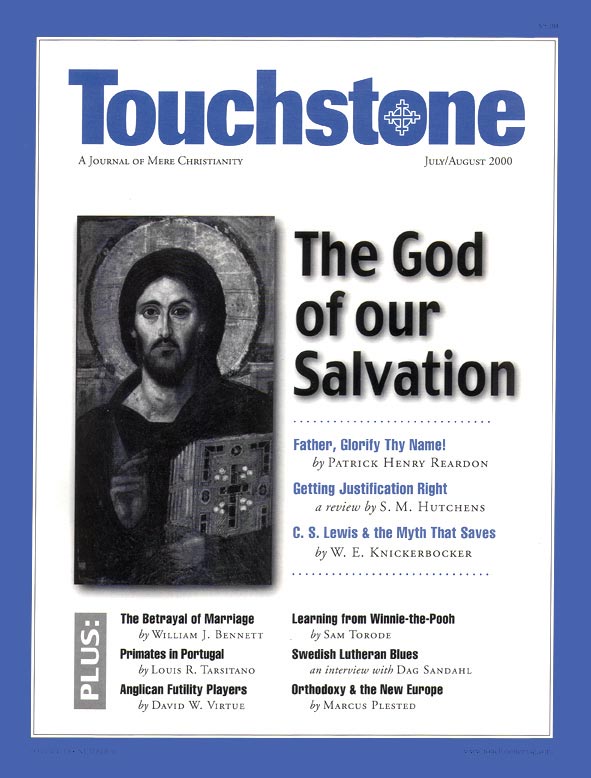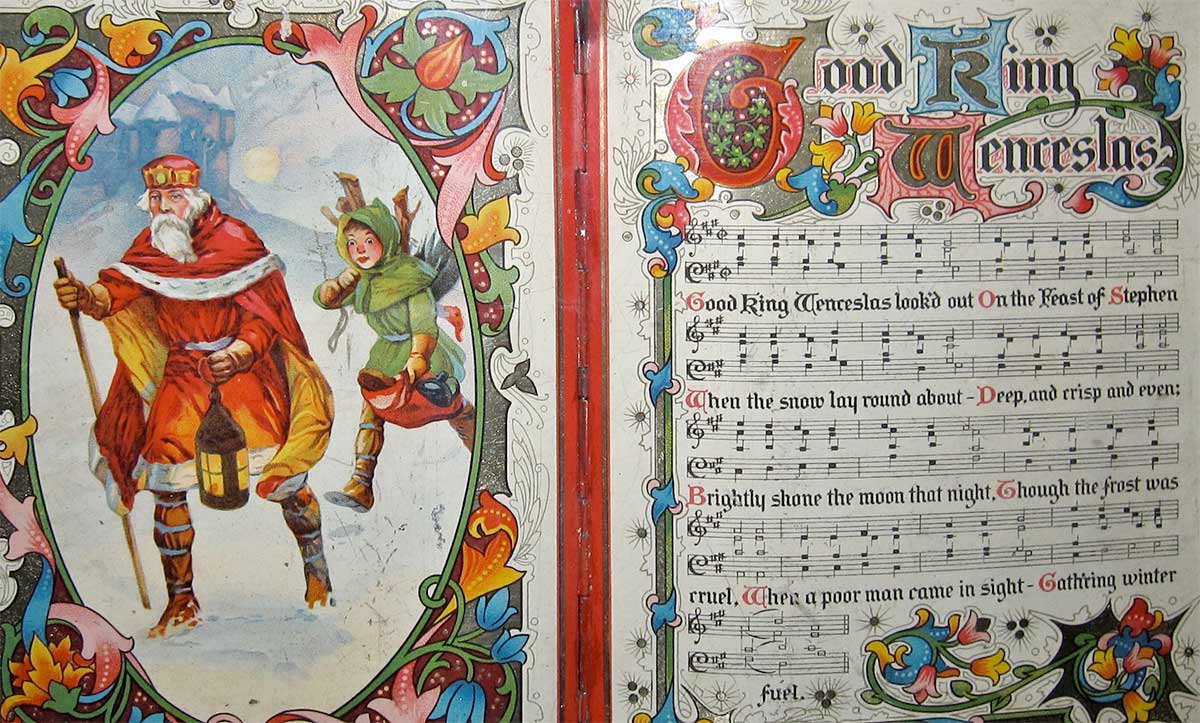Primates in Portugal
A Cautionary Example & a Cautious Hope for the Anglican Communion
by Louis R. Tarsitano
What makes a group of churches a “communion,” a sacramental fellowship in Jesus Christ, rather than just a club or a managerial network? Many Christian groups are struggling with this question, and it does not seem to matter much what church polity they follow or whether they use the language of “denominations,” “national churches,” “jurisdictions,” or “conferences” to describe their higher levels of organization.
Vast numbers of the laity, meanwhile, are appalled to experience a greater degree of discipline in their fast food than in their religion. A Big Mac is a Big Mac any place at all, whereas being an Episcopalian, a Methodist, or even a Roman Catholic can mean very different things in different congregations in the same city or town.
Keeping the Brand Name
Some bodies, like the international Anglican Communion, the collection of national and regional churches (known as “provinces”) that developed from the Church of England and its missionary efforts, have been limping along for years on the basis of institutional inertia and a desire to hang on to a recognizable “brand name.”
The trouble has been that certain provinces, such as the Episcopal Church in the United States, have been among the most vocal in claiming the “brand name” for themselves, even as they have done their best to evacuate the word “Anglican” of any objective meaning. It is as if the Anglican Tradition of historic doctrines and disciplines were one of those parlor games where individual pieces are removed from a teetering stack until it falls.
There are not many pieces left, especially in the United States, Canada, Great Britain, or anywhere else where a materialistic Western culture has captured the local Anglican churches. The churches in Africa, Asia, and South America are, however, in a rather better state. A number of them, indeed, are quite orthodox and continue to teach biblical doctrine and morality in the traditional Anglican way.
As one might expect, the gospel being true, the most orthodox churches are the only growing churches in the Anglican Communion. Anglicanism is becoming an African and Asian phenomenon, so that traditionalists “left behind the lines” in the revisionist and subtractive churches of the West are looking to African and Asian bishops for relief.
That relief began in the summer of 1998 at a Lambeth Conference, a meeting of the world’s Anglican bishops held once every ten years and hosted by the Archbishop of Canterbury. For the first time at a major Anglican gathering, the bishops of the “Two-Thirds World” (Africa, Asia, and South America) asserted themselves against the follies of their First World counterparts.
In the face of strident appeals for “diversity,” the usual calls to live in “tension” while a committee studies the matter, and accusations of “homophobia,” they led their brother bishops by a margin of seven to one in the passage of a resolution reaffirming the scriptural norms of Holy Matrimony (one man and one woman, for life) and sexual morality (chastity within marriage and celibacy outside of the marriage bond). They did this despite considerable manipulation of the reporting and voting procedures by the bureaucrats and their allies among the bishops.
Louis R. Tarsitano (d. 2005), a former associate editor of Touchstone, was a priest of the Anglican Church in America and rector of St. Andrew?s Church in Savannah, Georgia. He also was the co-author, with Peter Toon, of Neither Archaic Nor Obsolete: The Language of Common Prayer & Public Worship (Brynmill Press, Ltd., 2003).
subscription options
Order
Print/Online Subscription

Get six issues (one year) of Touchstone PLUS full online access including pdf downloads for only $39.95. That's only $3.34 per month!
Order
Online Only
Subscription

Get a one-year full-access subscription to the Touchstone online archives for only $19.95. That's only $1.66 per month!
bulk subscriptions
Order Touchstone subscriptions in bulk and save $10 per sub! Each subscription includes 6 issues of Touchstone plus full online access to touchstonemag.com—including archives, videos, and pdf downloads of recent issues for only $29.95 each! Great for churches or study groups.
Transactions will be processed on a secure server.
more from the online archives
calling all readers
Please Donate
"There are magazines worth reading but few worth saving . . . Touchstone is just such a magazine."
—Alice von Hildebrand
"Here we do not concede one square millimeter of territory to falsehood, folly, contemporary sentimentality, or fashion. We speak the truth, and let God be our judge. . . . Touchstone is the one committedly Christian conservative journal."
—Anthony Esolen, Touchstone senior editor









